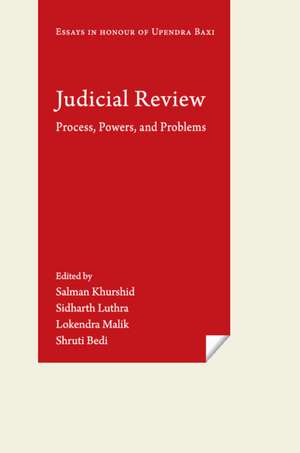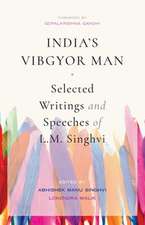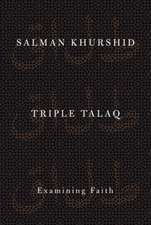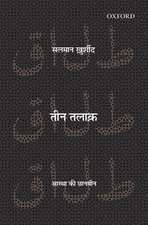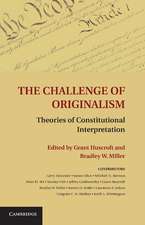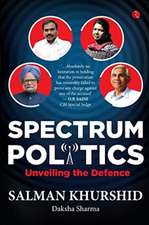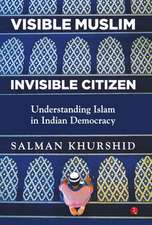Judicial Review: Process, Powers, and Problems (Essays in Honour of Upendra Baxi)
Editat de Salman Khurshid, Sidharth Luthra, Lokendra Malik, Shruti Bedien Limba Engleză Hardback – 10 iun 2020
Preț: 784.48 lei
Preț vechi: 912.18 lei
-14% Nou
Puncte Express: 1177
Preț estimativ în valută:
150.11€ • 157.15$ • 124.21£
150.11€ • 157.15$ • 124.21£
Carte disponibilă
Livrare economică 17-31 martie
Preluare comenzi: 021 569.72.76
Specificații
ISBN-13: 9781108836036
ISBN-10: 1108836038
Pagini: 460
Dimensiuni: 155 x 235 x 30 mm
Greutate: 0.68 kg
Editura: Cambridge University Press
Colecția Cambridge University Press
Locul publicării:Cambridge, United Kingdom
ISBN-10: 1108836038
Pagini: 460
Dimensiuni: 155 x 235 x 30 mm
Greutate: 0.68 kg
Editura: Cambridge University Press
Colecția Cambridge University Press
Locul publicării:Cambridge, United Kingdom
Cuprins
Foreword Justice A. K. Sikri; Editors' note Salman Khurshid, Sidharth Luthra, Lokendra Malik and Shruti Bedi; Introduction M. P. Singh; 1. The inadequacy of judicial enforcement of constitutional rights provisions to rectify economic inequality, and the inevitability of the attempt Mark Tushnet; 2. The interplay of law and politics in India James Manor; 3. Beating the backlog: reforms in administration of justice in India Abhishek Singhvi; 4. Judicial review: perspectives and reflections for the twenty-first century John Mceldowney; 5. When 'creeping jurisdiction' goes awry: the social action litigation to ban surrogacy Sital Kalantry; 6. Judicial review and the democratic judge Joel I. Colón-Ríos; 7. Judicial review: a tool to shape constitutional jurisprudence Balram K. Gupta; 8. The Baxian bioscope on Indian judicial process Amita Dhanda; 9. Judicial activism, courts, and constitutional revolutions: the Israeli case Yaniv Roznai and Gary J. Jacobsohn; 10. Democracy, constitution, and judicial review: a critique Vijender Kumar and V. P. Tiwari; 11. A minor jurisprudence of pathos: Upendra Baxi as teacher and writer Oishik Sircar; 12. The need for reinventing the Supreme Court as a constitutional court Sidharth Luthra and Nivedita Mukhija; 13. Appointment of 'distinguished jurists' as judges in the Supreme Court of India: a critical analysis Lokendra Malik; 14. Judicial dissent and judicial review: a functional analysis Yogesh Pratap Singh; 15. The power of judicial review: judicial chutzpah or judicial desideratum Shruti Bedi; 16. Judicial review of legislations by tribunals in India: law, problems, and perspectives P. Puneeth; 17. Criminalization of membership of terrorist organizations in India and the United States of America: human rights concerns Anurag Deep; 18. Article 142 of the Indian Constitution: on the thin line between judicial activism and restraint R. Hari Krishnan and Anurag Bhaskar; 19. Sketching the limits of Article 142 of the Constitution of India: a constitutional necessity Shailendra Kumar; 20. Constitutional morality and judges of the Supreme Court Salman Khurshid; About the contributors; Index.
Descriere
Discusses Upendra Baxi's role as an Indian jurist and how his contributions have shaped our understanding of legal jurisprudence.
